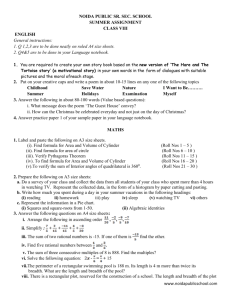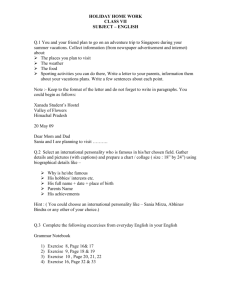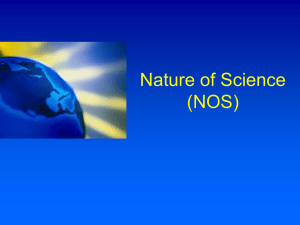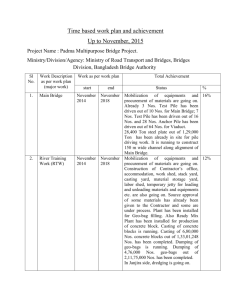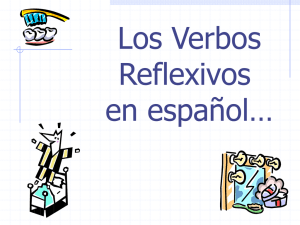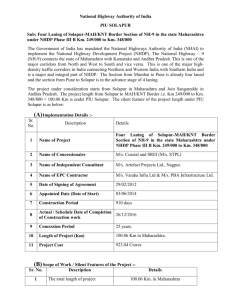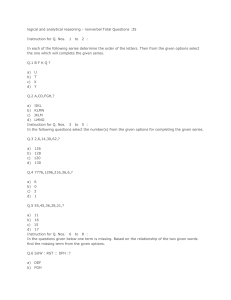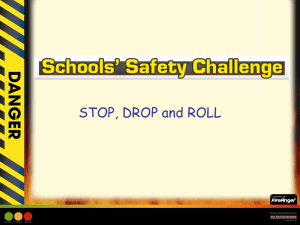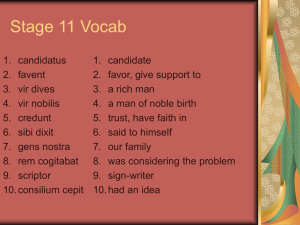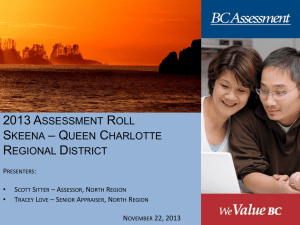ORGANIZATIONAL BEHAVIOUR
advertisement
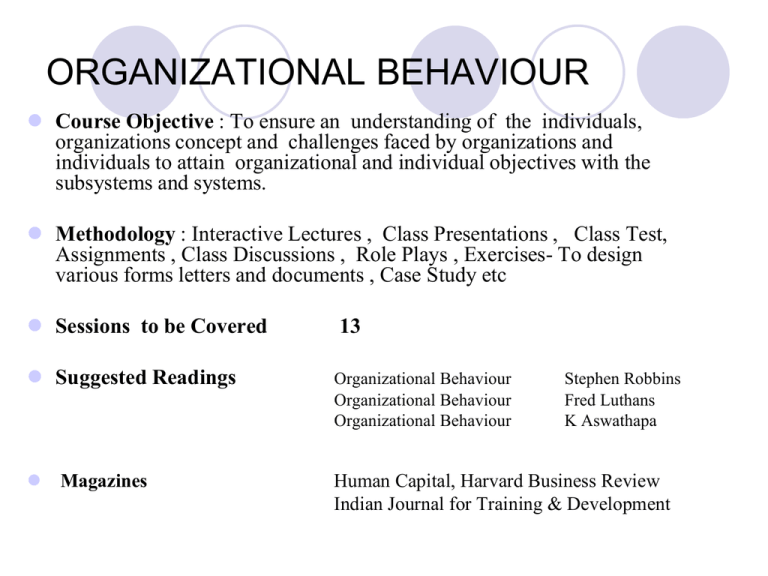
ORGANIZATIONAL BEHAVIOUR Course Objective : To ensure an understanding of the individuals, organizations concept and challenges faced by organizations and individuals to attain organizational and individual objectives with the subsystems and systems. Methodology : Interactive Lectures , Class Presentations , Class Test, Assignments , Class Discussions , Role Plays , Exercises- To design various forms letters and documents , Case Study etc Sessions to be Covered 13 Suggested Readings Organizational Behaviour Organizational Behaviour Organizational Behaviour Magazines Human Capital, Harvard Business Review Indian Journal for Training & Development Stephen Robbins Fred Luthans K Aswathapa Evaluation Pattern Semester Exam Test Presentation 60 Marks 20 Marks 20 Marks ( Book Reviews ) Presentations would start from 3rd session One presentation per class Book Reviews Rules for the Book Review Presentation Presentation would be for 8 mins Presentation would be team effort. Teams would be 6 members in 1 team Vivas after presentation in class One presentation per class Formal Dress code for presentation Who moved my cheese Stay Hungry Stay Foolish From Good to Great 80 / 20 Rule by Kamath Marriage of 2 states 7 Habits of highly Effective People 8th Habit of Stephen Covey The monk who sold his Ferrari Who will cry when you dies Tuesdays with morrie Roll Nos. 1,3,5,7,9,11 Roll Nos. 2,4,6,8,10,12 Roll Nos 13,15,17,19,21,23 Roll Nos 14,16,18, 20,22, 24 Roll Nos 25,27,29,31,33,35,37 Roll Nos 32,34,36,38,39, 40, 43, 45,47 Roll Nos 38,40,42, 44, 46, 48 Roll Nos 49, 50, 51, 53, 55,57 Roll Nos 52,54,56,58,59,60 Interpersonal Section Role PLAN OF ACTION Exercise of defining what is role ROLE CLARITY What is a role ? Who decides the role ? What parameters are important in a role ? Who defines the role ? Is the task same when we talk about professional role and family role ? Do we have a freedom to choose ? About TA Proposed by Dr. Eric Berne in mid 1960’s in his book “Games People Play” Popularized by Thomas A. Harris, author of the book I'm OK - You're OK, and Muriel James, author of Born to Win. When two people interact with each other they engage in social transactions in which one person responds to the another. Study of such “social transactions” is known as Transactional Analysis. It is used to study and analyze interpersonal communication Ego States: For example, in the workplace, an adult supervisor may take on the Parent role, and scold an adult employee as though they were a Child. Or a child, using their Parent ego-state, could scold their actual parent as though the parent were a Child. E.g. Sometimes wanting to be naughty in the class, eating all sorts of eateries in the class Kinds of Transactions: Complementary Transaction Complimentary Transactions Example 1 A: "Have you been able to write the report?“ B: "Yes - I'm about to email it to you." ----(This exchange was Adult to Adult) Example 2 A: "Would you like to skip this meeting and go watch a film with me instead?" B: "I'd love to - I don't want to work anymore, what should we go and see?" (Child to Child) Example 3 A: "You should have your room tidy by now!" (Parent to Child) B: "Will you stop hassling me? I'll do it eventually!" (Child to Parent) Crossed/ Blocked Transaction Crossed Transactions Example 1a: A: "Have you been able to write that report?" (Adult to Adult) B: "Will you stop hassling me? I'll do it eventually!" (Child to Parent) is a crossed transaction likely to produce problems in the workplace. "A" may respond with a Parent to Child transaction. For instance: A: "If you don't change your attitude, you'll get fired." Example 2a: A: "Is your room tidy yet?" (Parent to Child) B: "I'm just going to do it, actually." (Adult to Adult) is a more positive crossed transaction. However there is the risk that "A" will feel aggrieved that "B" is acting responsibly and not playing their role, and the conversation will develop into: A: "I can never trust you to do things!" (Parent to Child) B: "Why don't you believe anything I say?" (Adult to Adult) Stroking: Positive Negative A key idea is that people hunger for recognition, and that lacking positive strokes, will seek whatever kind they can, even if it is recognition of a negative kind. We test out as children what strategies and behaviours seem to get us strokes, of whatever kind we can get. Life Positions: Advantages of TA: Improves interpersonal communication Simple to learn Applicable in Motivation Helps in Organizational Development Can be used at home as well as in office Disadvantages of TA: Few scientific facts to prove Inhibits “cuteness” rather than an insight into human behavior Ego states are difficult to define. ORGANIZATIONAL ROLE What role you play is not more important than the role itself How do you define the role of employees in the organization Who defines your role Do you have the freedom to choose ROLE Roles are sets of shared expectations about who should do what under a given set of circumstances. It is a complex and necessary organizational component. While the organization's definition of a role may be identical for two people, the way in which they work and their effectiveness and success may vary. It is therefore important that the individual roles are clarified by operational zing the interactions and expectations that govern their behavior ROLE CLARITY A preview of RANG DE BASANTI LAGAAN RANG DE BASANTI GIST OF THE FILM CRITICAL ANALYSIS TAKE AWAYS Thank You
